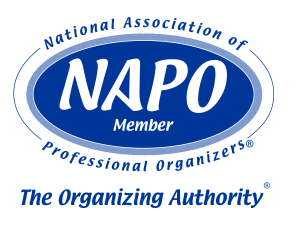 “I just don’t have time to . . . . . “ Go ahead, fill in the blank.
“I just don’t have time to . . . . . “ Go ahead, fill in the blank.
Ever said that? I’ll be you have. I know I have.
But is it time we don’t have or energy? If we managed our energy better, would our time management improve? If we managed our time better, would our energy improve? What could we accomplish if we managed both just a little better?
Earlier this year I started with a new client. She said by noon her energy was totally zapped and she just couldn’t get anything done throughout the day, creating a tremendous amount of guilt and anxiety. Having ruled out health problems, we started to look at her routines, really focusing on where she was spending her time and energy.
Here are just a few examples of what we found:
- Nine months ago she became an empty-nester and no longer had the time or energy commitment of children at home. She hadn’t decided on what her next chapter was going to look like (volunteer? go back to work? go back to school?), so now she had all this time on her hands without a clear strategy on how to use it. She woke up without a blueprint for the day, so the day just slipped away. At the end of the day, she felt guilty and unfulfilled. Not having a good time management plan drained her energy.
- She didn’t have a good, consistent sleep pattern. She went to bed late because she was easily distracted and didn’t make it through her day’s “to do” list until 1:00 – 2:00 AM. She got up early to see her husband off for the day, but since she’d only slept for about five hours, she was running on empty in the energy department by noon. Her poor time management the day before affected her energy management the following day.
- She loved to shop, consequently spent a lot of time either in stores or online looking for the “perfect . . . .” Again, fill in the blank. So instead of buying one thing that was “good enough,” she bought several hoping to find “perfect.” This created both a time and energy management problem since she would spend hours returning items she purchased that she wasn’t going to use. Not creating a boundary around the energy expended looking for “perfect,” resulted in a time management situation when hours were spent coordinating returns.
As we reviewed her routines, we continued to find situations where poor time management affected her energy and situations where she was expending an enormous amount of energy on an activity that in the end had an impact on her time.
To better manage both her time and energy, we created some structure around how she wanted to manage both.
We started with:
Creating a structure that included time for sleep, exercise, meal preparation, social interaction, and mindfulness.
She made a commitment to get in bed by 11:00 PM at the latest.
She didn’t know if she was a Zumba or Yoga girl, a runner or a hiker, a golfer or a tennis enthusiast, so some self-exploration when it came to an exercise routine was necessary.
Because of poor time management and the diminished emotional need to feed “the family,” she and her husband subsided on a significant amount of take-out. Recreating her vision of “family” as just the two of them, changed her perspective on the value of daily meal preparation.
Because of the previous time commitments for the family, she’d reduced her social interaction in her local community. Looking for opportunities to become involved in the community, recreating some social connections that may have fallen by the wayside in the day-to-day rush of household management, provided an emotional high that had been missing since the kids moved out.
She included mindfulness in her regular routine. Focusing on living in the moment, not rehashing the past and living in an undefined future, can provide a great amount of peace and clarity. Mindfulness can be anything from meditation to a simple walk in the park. Whatever brings your mind into the present is extremely valuable to mental and physical well-being.
Creating balance and structure has been extremely beneficial for my client to manage her time and energy. Where might you be out of balance in the time and energy department?
Cindy Jobs, COC, ACC
Looking for more information?
Click here for 15-minute organizing tips.
National Association of Productivity & Organizing Professionals, Seattle Chapter Vice-President
International Coach Federation
Institute for Challenging Disorganization
Level I Certificates earned in Chronic Disorganization; ADD; Client Administration; Time Management; Mental Health; and Hoarding.
Level II Specialist Certificates earned in Chronic Disorganization and ADHD









